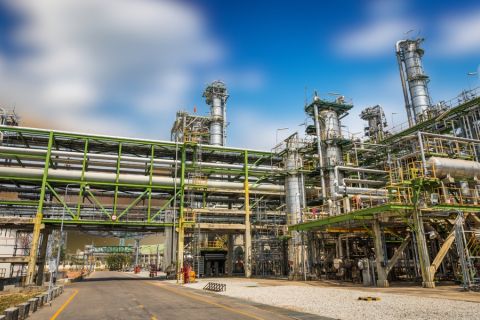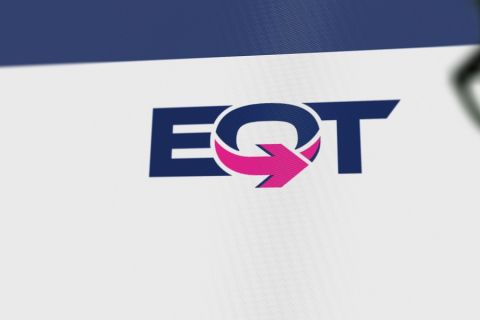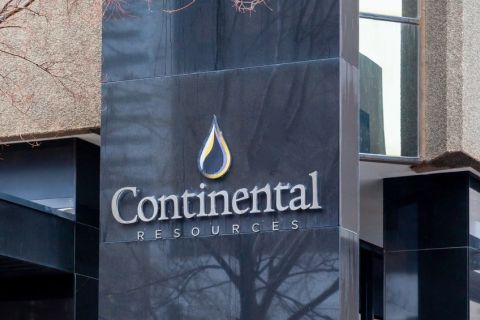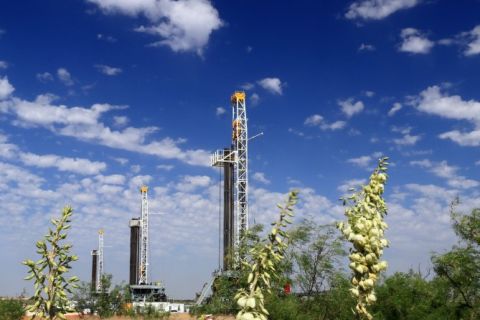
With fuel prices soaring, the U.S. trucking industry has a decision to make: keep paying high gas prices or look for other alternatives. The trending choice is the second one, and that could propel some select natural gas stocks to climb as a result.
You don’t need to look far for a good example of why that trend toward cheaper fuel alternatives is growing.
On March 19, 2012, Clean Energy Fuels, founded by billionaire oilman T. Boone Pickens, signed a 10-year deal with logistics services provider Saddle Creek Exploration to construct natural gas filling stations at current Saddle Creek locations. The partnership is aimed to cut the costs and improve the operational efficiency of Saddle Creek’s natural gas truck operation.
The third-party supply firm has 29 facilities across the U.S. and owns about 14 million square feet of warehouse space. The natural gas filling stations, the first of which opened in Lakeland, Fla., last December, can fuel up to 120 trucks per day.
The move is hardly an anomaly in the U.S. trucking sector, which is struggling with high gas prices and lower profit margins. Saddle Creek executives say the deal with Clean Energy can save $1.50 per gallon--or more--in costs when compared with the price of diesel fuel, which is trading at an average of $4.14 per gallon as of March 19, 2012, according to data from the U.S. Energy Information Administration. The EIA says that natural gas burns about 30% less pollution than traditional gasoline.
Make no mistake, aiding the environment may be one reason for the move, but when push comes to shove, $1.50 per gallon in savings provided all the incentive Saddle Creek needed to cut a deal. “Sustainability is a core strategy at Saddle Creek, and this major new station-building agreement with Clean Energy marks a significant milestone in our efforts to transition our truck fleets to natural gas power,” said Mike DelBovo, president of Saddle Creek Transportation, in a statement following the deal’s announcement. “Our aim is to provide the benefits of this clean, cost-efficient, abundant domestic fuel to our shipping industry customers across the nation."
That makes Clean Energy a stock to watch for investors looking for a green element in their portfolios that goes beyond sustainability. The Seal Beach, Calif.-based natural gas provider is, according to company statements, one the largest providers of natural gas fuel for the U.S. transport industry. According to the company’s web site, the company fuels more than 530 fleet customers and 25,000 vehicles at more than 270 U.S. locations.
Some high-level stock pickers are starting to take notice. CNBC’s Jim “Mad Money” Cramer says that Clean Energy is ideally positioned to leverage the growing natural gas market for transport fuel, which Cramer says is growing substantially.
There are no sure things on Wall Street, though. Cramer cautions investors to watch Clean Energy closely, to see if the firm can build enough fueling stations to keep up with demand for lower-price natural gas fuel. In a March 14, 2012, interview with Clean Energy chief executive officer Andrew Littlefair, the CEO also commented on the company’s latest earnings post, where it’s stock lost 21 cents per share on revenues of $86.2 million.
Littlefair also said that he was “disappointed” that Congress couldn’t close a deal on subsidies for trucks converting to natural gas. But he did say the firm was “making a dent” in the structural operations needed to satisfy higher demand for natural gas fuels by the trucking sector.
And certainly, the demand for natural gas fuels is there. Natural gas fuel has triggered a sea change in the way trucking fleets operate, with big brand names like UPS, Coca-Cola, Waste Management and Wal-Mart all reconverting their trucks to run on natural gas.
These companies are cutting transportation costs by about 70%, on average, by using natural gas to fuel their fleets. But the real money is more likely made in companies like Clean Energy, which produces the fuel, or in manufacturers like General Motors and Chrysler, which both announced this year that they will begin producing natural gas-fueled pick-up trucks for businesses and for consumers.
Another trend to watch is companies that are tied to the filling stations needed to accommodate the higher number of natural gas-powered vehicles hitting the nation’s highways. Currently, there are about 4,000 public natural gas fueling stations, compared to about 100,000 traditional gas stations across the U.S.
That could mean looking at companies like Chesapeake Energy, which inked a pact with General Electric this year that sees GE building 250 new filling stations called “CNG-In-A-Box” that would convert regular gasoline to natural gas fuel (supplied by Chesapeake) via a new pipeline technology GE has created. Chesapeake is the nation’s second largest natural gas producer and is ideally positioned to leverage the transportation industry’s demand for natural gas fuel. The GE deal can cement that market-share lead, and further its stated goal of putting more natural gas vehicles on U.S. roadways, especially commercial vehicles like trucks, buses, and vans.
"With the development of shale resources dramatically increasing the amount of low-cost gas in North America, the GE-Chesapeake collaboration can help incentivize operators to put more NGVs on the nation's highways," said Chesapeake in a statement.
Other potential stocks to examine are Cummins, which builds natural gas engines with customers in 190 countries, according to Zacks Investment, along with Westport Innovations, a producer of natural gas engines that has production ties to Cummins. WPRT is trading at about $44 per share, and Cummins is trading at $121 per share, and was just ranked as a “strong buy” by Zacks on March 19.
Natural gas stocks may be a longer-term play. After all, it’s going to take a while to get all of those filling stations up and running and all those natural gas-fueled vehicles on the road. But the long-term trend is clear – natural gas is cheap and plentiful, and U.S. businesses want it to fuel their trucks and vans.
As any student of economic history will tell you, whatever U.S. businesses want, U.S. businesses get. Natural gas fuel, in large, cheap abundance should be no different.
Recommended Reading
Oilfield Service Companies Dril-Quip, Innovex to Merge
2024-03-18 - Dril-Quip Inc. and Innovex Downhole Solutions Inc. will emerge as a new company, Innovex International, with expanded reach in global markets.
Talos Energy Sells CCS Business to TotalEnergies
2024-03-18 - TotalEnergies’ acquisition targets Talos Energy’s Bayou Bend project, and the French company plans to sell off the remainder of Talos’ carbon capture and sequestration portfolio in Texas and Louisiana.
EQT, Equitrans to Merge in $5.45B Deal, Continuing Industry Consolidation
2024-03-11 - The deal reunites Equitrans Midstream Corp. with EQT in an all-stock deal that pays a roughly 12% premium for the infrastructure company.
Continental Resources Makes $1B in M&A Moves—But Where?
2024-02-26 - Continental Resources added acreage in Oklahoma’s Anadarko Basin, but precisely where else it bought and sold is a little more complicated.
Permian Activity in ‘Low-to-no-growth’ Mode for First Half
2024-02-22 - After multiple M&A moves in 2023 and continued E&P adherence to capital discipline, Permian Basin service company ProPetro sees the play holding steady.





